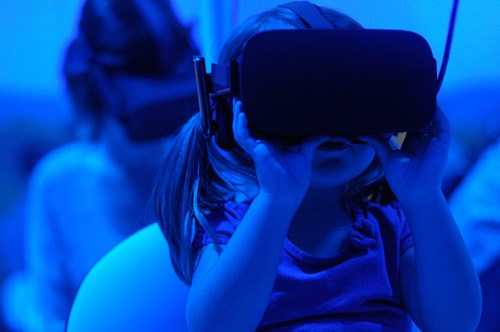Five essential EdTech trends for 2019
17 January 2019
The need to accelerate digital capabilities across all aspects of the education spectrum came to the forefront in 2018. But what will be the essential trends to watch for in 2019?
In 2018, organizations and institutions increasingly focused on empowering students to take control of their own personal development, in parallel faculty staff and researchers also sought out ways to enhance their own skills and learning.
While this trend is expected to continue in 2019, and schools and universities will double down on preparing students for the modern workplace, we will see institutions evaluating how they adapt to the changing digital landscape.
In the fast-moving world of EdTech, the race to find, evaluate, and implement solutions that will transform classrooms and help students, teachers, and parents to succeed will accelerate in 2019.
Yet, with budgets becoming more constrained, it’s important to accept that although technology plays a key role in shaping the way education is delivered, it shouldn’t be clutched to at the expense of nature and nurture.
Against that context, here are our five EdTech trends to watch in 2019:
1. Personalized and mobile learning
While teaching and learning should never be viewed as one-size-fits-all, the importance of personalized and adaptive learning will accelerate in 2019, as institutions look to harness technology inside and outside the classroom.
Virtual classrooms, collaboration tools, and learning analytics are already providing students with ways to take charge of their learning and personal development. In 2019, teachers will actively seek out solutions that help them adapt teaching initiatives to the individual needs of the student. They will also look at how they can harness analytics and online tools to improve their understanding and ability to nurture underperforming or struggling students.
While technology is seen as a key player in helping to advance these initiatives, it’s important that it doesn’t replace face-to-face teaching or ignore the specific learning styles of the child.
2. Artificial intelligence (AI) and machine learning (ML)
With AI increasing its prevalence across all aspects of our lives, education institutions will need to assess the impact on their students’ lives. Focus will be placed on preparing students for the changes AI and ML will bring to the modern workplace and the skills required to be successful in future careers.
Although AI and ML can help enhance collaboration and communication between teachers and students, the delivery of personalized learning, improvements in classroom accessibility, and the ability to automate some administrative tasks will dominate the agenda and allow educators to focus on other learning initiatives.
With the computing revolution in full swing, we expect autonomous machines and analytics to help enhance the way programming and engineering are taught to children.
At the same time, AI can be applied to inform the way teachers build stronger relationships with their students through personalized learning and a deeper understanding of students’ individual capabilities and achievements.

3. Gamification
Technological advances are unequivocally transforming how digitally savvy students learn.
For many schools, the ability to ditch textbooks is still a distant reality. Gamification is not a new concept in education, but the necessity to increase levels of engagement will see the use of the likes of Minecraft in the classroom accelerate in 2019.
Research shows that learning through play evokes creativity, imagination, and happiness, and it begins at an increasingly early age—one in four children under two now have their own tablet. Educators focusing on learning outcomes are expected to incorporate more programs and tools that give students—especially those in the K–12 bracket—the freedom to self-discover, learn, and develop skills on their own in new and inventive ways.
4. Project-based learning
A lack of skills in STEM is currently costing the UK economy an average of £1.5bn per year, making it a critical area of consideration for education and learning in 2019.
To combat the shortage of workers needed to fill science, technology, engineering, and mathematical fields, schools will be looking to project-based learning. This allows them to plug the skills gap and focus on helping students to solve authentic problems and real-world challenges, through the invention of new solutions.
Specifically, hands-on experience increases peer collaboration and interactivity and is another means through which creativity can be used to stimulate learning and development.
5. Augmented reality, virtual reality, and immersive technology
The onset of 5G and the presence of more devices in the classroom will bring immersive experiences that utilize increased connectivity capabilities.
According to Gartner, by 2022, 70% of enterprises will be experimenting with immersive technologies in some way. It’s, therefore, safe to expect a similar pattern in education, as institutions look to embrace digital transformation initiatives.
Immersive teaching programs, which provide teachers with the ability to transport students to other continents or take them inside the human body, will become more commonplace and create new learning experiences that were previously impossible in the classroom. These technologies will help accelerate understanding of complex topics and encourage students to learn and explore rich environments in bold new ways.
In summary
2019 is the year when institutions will increasingly look to find new ways to embrace the digital evolution and capitalize on initiatives that deliver better learning outcomes.
Organizations, from enterprises to digital start-ups, that rise to the challenge and focus on the value of creating enhanced personalized learning experiences will flourish and help support teachers and students succeed.
For more information
If any of these issues strikes a chord with you or your business, please get in touch. We have a host of case studies that illustrate these points and would love to talk with you about them at Bett 2019 and beyond.

